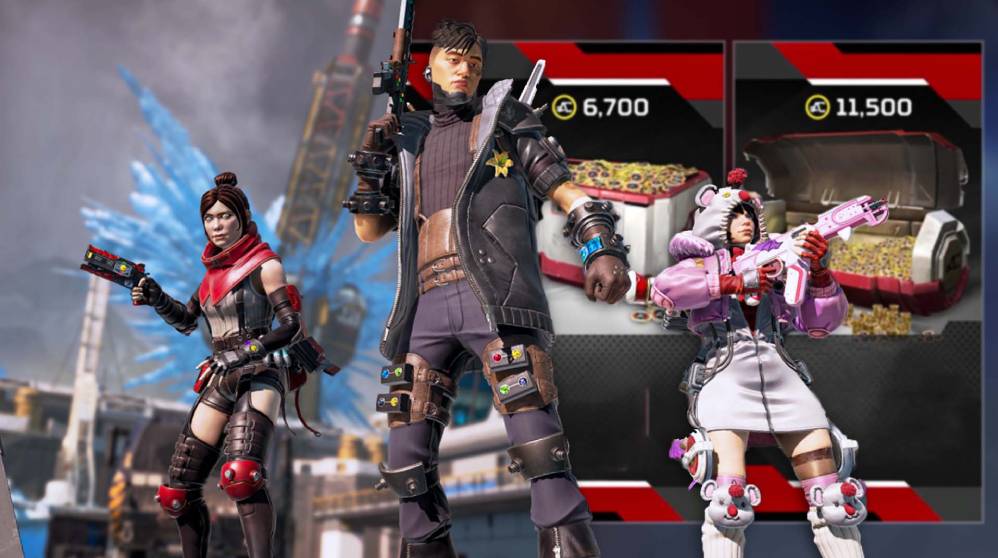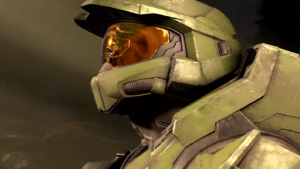Highlights:
- Apex Legends and Final Fantasy VII Rebirth crossover event launched on January 9th
- Players criticize the high price of microtransactions in the event
- Respawn partners with Square Enix to bring Final Fantasy characters to Apex Legends
- Apex Legends is a free-to-download battle royale game developed by Respawn Entertainment
- Final Fantasy VII Rebirth is a highly anticipated remake of the classic RPG game
- Microtransactions in games have been a controversial topic for years
Introduction:
A new Apex Legends and Final Fantasy VII Rebirth crossover event has launched, marking the first collaboration between EA’s free-to-download battle royale game and the highly anticipated remake of the classic RPG game. However, the event has been met with criticism from players due to the high price of its microtransactions. Developed by Respawn Entertainment, Apex Legends has gained a large player base since its release, and the addition of Final Fantasy characters has generated excitement among fans. Despite this, the implementation of microtransactions has soured the experience for many players.
Concerns Over Microtransactions:
One of the main concerns players have raised about the Apex Legends and Final Fantasy VII Rebirth crossover event is the high price of its microtransactions. Microtransactions are in-game purchases that allow players to acquire cosmetic items, such as character skins, weapon skins, and emotes. While these items do not affect gameplay, they are often highly sought after by players who want to personalize their gaming experience.
In the case of this crossover event, players have found the prices of the microtransactions to be exorbitant. Some items are priced at over $20, which many players consider to be too high for virtual cosmetic items. This has led to frustration and disappointment among players who were excited about the crossover event but now feel excluded due to the high prices.
The Value of Cosmetic Items:
The controversy surrounding microtransactions in games is not new. In recent years, many AAA games have faced backlash from players for implementing microtransactions in a way that feels exploitative. While some argue that microtransactions are a necessary source of revenue for game developers, others believe that they devalue the gaming experience and create an unfair advantage for players who are willing to spend more money.
In the case of the Apex Legends and Final Fantasy VII Rebirth crossover event, the high prices of the microtransactions have caused players to question the value of cosmetic items. Some players have expressed their frustration at having to pay such high prices for virtual items that have no impact on gameplay. They argue that the cost does not match the perceived value of the items and that the event should have been more inclusive for all players, regardless of their willingness to spend money.
Respawn’s Collaboration with Square Enix:
The collaboration between Respawn Entertainment and Square Enix to bring Final Fantasy characters to Apex Legends was an exciting announcement for fans of both franchises. The crossover event introduced several iconic Final Fantasy characters as playable legends in Apex Legends, including Cloud Strife, Tifa Lockhart, and Sephiroth.
This collaboration not only provided a fresh and exciting twist to the gameplay of Apex Legends but also allowed fans of Final Fantasy to experience their favorite characters in a new context. The inclusion of these beloved characters was met with enthusiasm and anticipation from both Apex Legends and Final Fantasy fans alike.
The Impact of Microtransactions on the Event:
Despite the excitement surrounding the collaboration, the high prices of the microtransactions have overshadowed the event itself. Many players feel that the focus on monetization has taken away from the enjoyment of the crossover event. Instead of being able to fully immerse themselves in the experience of playing as their favorite Final Fantasy characters, players are met with the frustration of having to pay high prices for cosmetic items.
This has led to a divide among the player base, with some players choosing to boycott the event altogether and others reluctantly purchasing the microtransactions despite their dissatisfaction. The controversy surrounding the microtransactions has shifted the focus away from the collaboration itself and onto the issue of pricing in the gaming industry.
The Future of Microtransactions:
The debate over microtransactions in games is unlikely to end anytime soon. As long as there is a demand for cosmetic items and a willingness to spend money on them, game developers will continue to implement microtransactions as a source of revenue. However, it is important for developers to consider the impact of these microtransactions on the overall gaming experience and to find a balance between monetization and player satisfaction.
In the case of the Apex Legends and Final Fantasy VII Rebirth crossover event, the high prices of the microtransactions have alienated a significant portion of the player base. This serves as a reminder that player feedback and satisfaction should be a top priority for game developers. By listening to the concerns of players and finding ways to make microtransactions more accessible and affordable, developers can create a more inclusive gaming experience for all players.
Conclusion: Apex Legends and Final Fantasy VII Rebirth
The Apex Legends and Final Fantasy VII Rebirth crossover event had the potential to be a landmark collaboration between two beloved gaming franchises. However, the high prices of the microtransactions have overshadowed the event and caused a rift among the player base. While microtransactions are a common feature in modern games, it is important for developers to find a balance between monetization and player satisfaction. By considering the value of cosmetic items and making them more accessible to all players, developers can create a more inclusive and enjoyable gaming experience. The controversy surrounding the Apex Legends and Final Fantasy VII Rebirth crossover event serves as a reminder that players’ voices should be heard and that their feedback should be taken into account when making decisions about pricing and monetization in games




